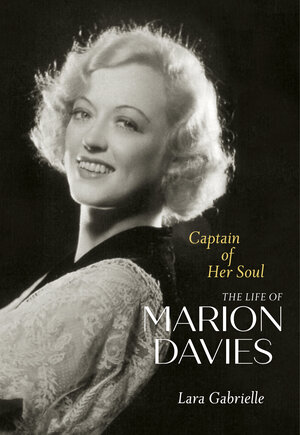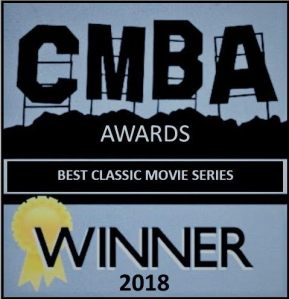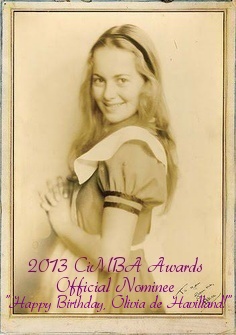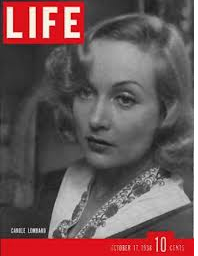By Lara Gabrielle Fowler
True Confession (1937) is one of the films marking the twilight of Carole Lombard’s short but illustrious career. By the time this film was made, Carole had shot 71 movies in a career spanning a total of 16 years, and after True Confession she would make 7 more before her sudden and untimely death. In this movie, Carole plays perhaps the strangest and screwiest heroine of her career, a pathological liar who runs the world amok with her fibs. A user review on iMDB rather aptly describes her antics as “right out of the Lucy Ricardo playbook.”
Helen Bartlett (Lombard) is a writer who has perpetual writer’s block and instead of writing, lives her life in a fantasy world of lies. Her husband Ken (Fred MacMurray) is an unfailingly honest lawyer who struggles with money because his principles do not allow him to take the case of any guilty party. After Ken refuses the case of a guilty ham thief, Helen takes a job as secretary to wealthy businessman Otto Krayler but on the first day of the job he seduces her. She flees and plans not to return, until she finds that she has left her hat and coat at his office. She goes back to get them and learns that Otto Krayler has been murdered during the time she was gone. She is arrested on suspicion of the murder and then Helen, the pathological liar, relays a vivid account of how she did indeed kill Otto Krayler. Then she gives conflicting testimony, saying that she did not. She is put on trial for his murder, wherein her husband defends her and she pleads self-defense, as they reason that no one will believe her innocence.

To complicate matters, a man named Charley Jasper (John Barrymore), a noted criminologist, is convinced that she is indeed innocent. Helen panics at this, as she believes a plea of “not guilty” will result in her conviction. Jasper keeps his thoughts to himself, and Helen is found innocent in the court.
After her acquittal, Helen writes a successful novel about her life story and she buys a house on Martha’s Lake with Ken. Charley comes over to visit and tries to blackmail them with Krayler’s wallet, saying that HE killed Krayler, therefore rendering Helen’s testimony perjury. He then reveals that his brother-in-law killed Krayler, and Ken leaves the house fuming over Helen’s lie to the court. She tries to get him to come back by saying that she is pregnant, which is another lie. He returns, but then finds out that she is not. The movie ends as Ken brings Helen into the house vowing to teach her not to lie.
The whole movie is completely backward and this not only makes it great fun to watch, but also almost a brain teaser, as nothing is as it should be. Much of the movie is spent trying to figure out how far Helen’s lies will take her before they backfire. She is an unlikely heroine, someone who deliberately fools the courts and her husband, but yet due to Carole’s portrayal of the character of Helen, we somehow find ourselves rooting for her. It is likely that if this movie were made today it would not be accepted as a comedy. Instead, I would venture to say that it would be presented as a courtroom drama, ending with Helen receiving the psychological help that she so clearly needs.

The cast of “True Confession” (missing: John Barrymore) eats lunch between scenes.
During the filming of “Twentieth Century” three years earlier, Carole and John Barrymore became good friends. By 1937, John Barrymore was in the ravages of severe alcoholism and an illness that could have been the then-unknown Alzheimer’s Disease. His career was in a steep decline, as he was often on a binge and when he was sober, he could barely remember his lines. Carole advocated passionately for him, using her significant power with Paramount to demand that her friend be given the role of Charley Jasper in True Confession. Though Barrymore was a very risky hire at that point, Carole did not back down and Paramount conceded to Barrymore as Charley. He gave a performance that demonstrated, as it did in Twentieth Century, that he had a great talent for comedy and had these films come earlier in his career, he may have developed this talent to his professional advantage. As it was, though, despite Carole’s efforts, this film could not turn Barrymore’s life around and he died of cirrhosis of the liver brought on by his lifetime of alcohol consumption.
Carole remained his friend to the end. She was extremely well liked in Hollywood, an easygoing and friendly personality who made friends with all her costars. She was a loyal friend, and often went to the bat for them, as she did with Barrymore on this film.

See you next time!




























_03.jpg)


Helen’s character is sort of reminiscent of Gwen, Goldie Hawn’s character in “Housesitter” (1992), though I have no idea whether Goldie had ever seen “True Confession.”
This film perhaps inspires more diverse reaction than any other in the Carole canon. Some consider it one of her finest films; others (notably Leonard Maltin) loathe it. I’m personally sort of in between — some of it is excellent, but at other times it goes a bit too far.
Yeah, I enjoyed it. I thought it was a really interesting premise and the performances were all great. I’ve never seen “Housesitter,” but Goldie Hawn is often a little Carole-ish anyway (at least in her earlier roles), so I’m not super surprised that her character is reminiscent of Helen. I thought Helen was a really strange character, she is really pretty loathsome and kind of a terrible person, but we still root for her.
Pingback: The Barrymore Trilogy Blogathon: Carole and John, together again | Carole & Co.